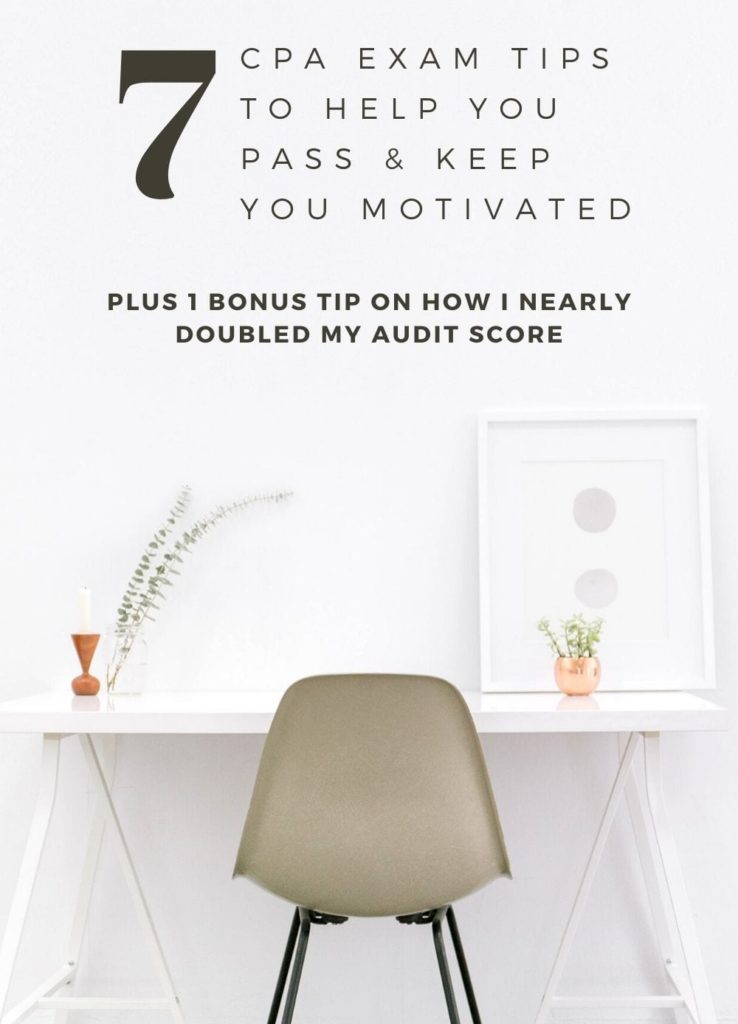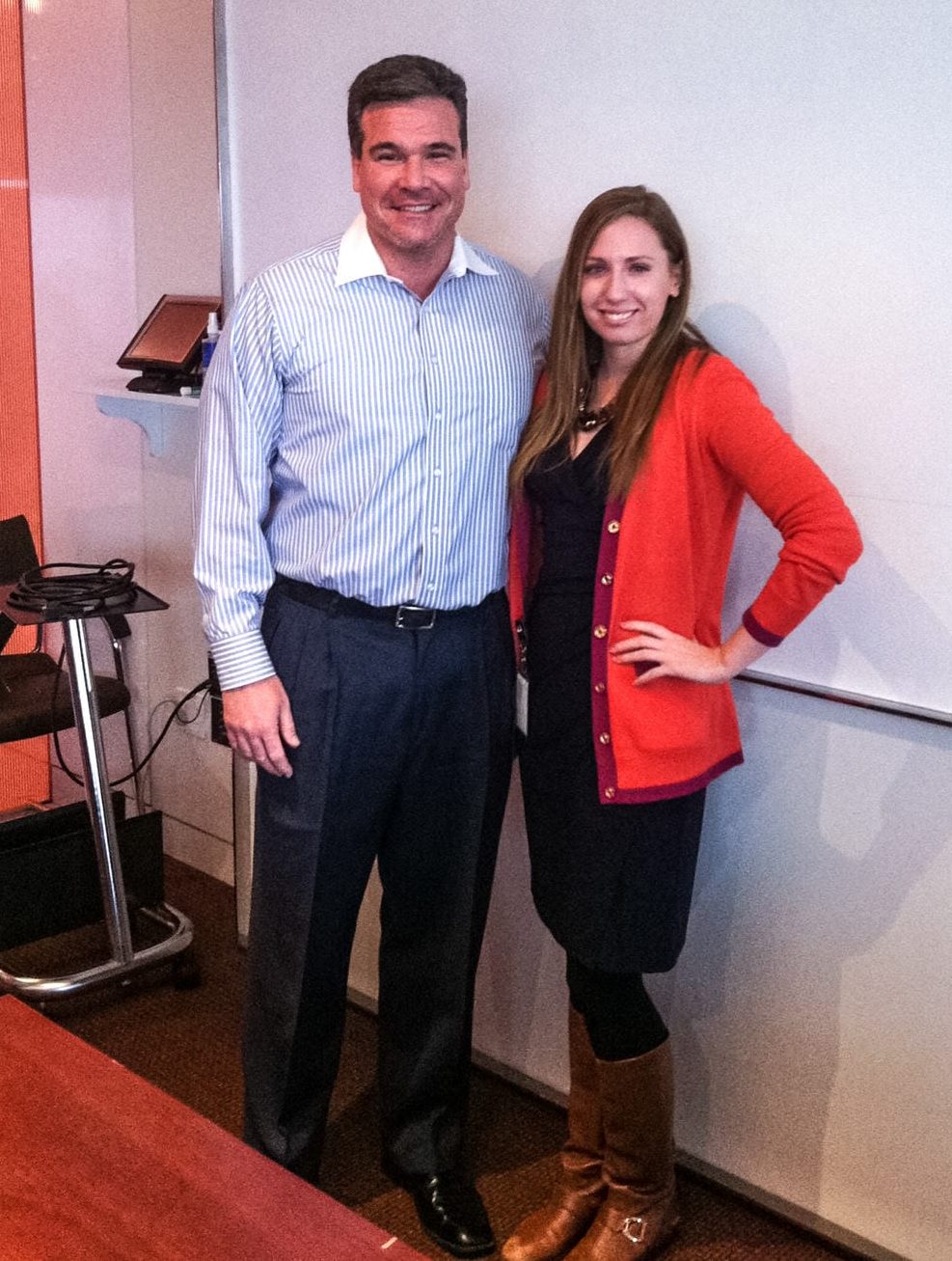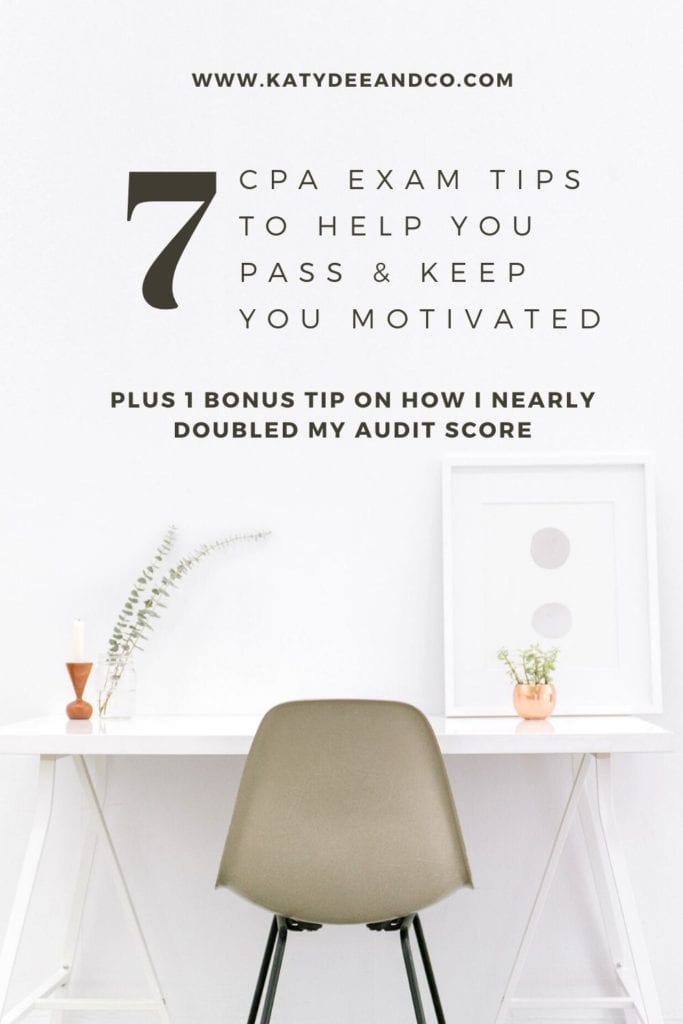This article may contain affiliate / compensated links. For full information, please see the disclaimer here.

- 1. Always maintain a schedule and stick to it.
- 2. Workout Before Taking Your Exam
- 3. Remember to Reward Yourself
- 4. Study for One Part at a Time
- 5. Focus on the Multiple Choice Questions
- 6. You are not Ready to Take the Exam Until You are Consistently Getting Scores in the High 80’s, and 90’s
- 7. Use the “Brain Dump” Method for Your Scratch Paper
- 8. BONUS TIP: Repetition Until You Get It Right
Ya’ll have been asking for CPA exam tips and I’m here to give them to you! I passed the CPA exam in 2013. It took me about a 1 year and 2 months to pass every part, and that included failing two parts (Audit and REG).
I want to make it clear that I DO NOT test well (I scored a 1020 on the SAT, but my 4.0 GPA and extracurriculars are what got me into my dream university). I also did not take any medications to help me focus/study. So if I could pass the CPA exam in about a year, so can you! It will be a hard year, but just think about all the free time you’ll have once you do!
You got this! Below are seven CPA exam tips (plus a BONUS tip that helped increase my Audit score from 55 to 95!) that were most beneficial to helping me pass and kept me motivated along the way:
1. Always maintain a schedule and stick to it.
Never, ever, ever just ‘wing it’ when it comes to studying and taking a part of the CPA exam.
Instead, plan out how many weeks it will take you to study for the exam. Be sure to leave 1 week prior to taking the exam to study for the exam every day. All CPA exam prep systems will give you an idea of how many weeks it will take to study for each part. Use that as a guide.
My own study schedule looked something like this. Yes, it is intense and no, it is not for everyone. But this is what worked for me:
- I planned ~6-8 weeks of studying for each section.
- I attended the in-person lectures at DeVry which were 3 times a week roughly ~4hrs each. This gave me the structure I needed to focus on learning the material.
- The other day that week, I would put in 1.5-2 hrs of studying after work to get through the chapter assignments.
- I would also study my flashcards during my commute on the bus to and from work (~30 minutes each way).
- Friday nights were days I did not study and would do something fun.
- Each weekend day was a crunch session. I would spend 6-8 hours studying straight on material. Usually in a library to get out of my apartment. I would then reward myself that night with Whole Foods hot bar dinner and doing something relaxing like watching a movie with friends.
- 1 week prior to taking each exam I would put in 5-8 hours of studying every day until I was scoring in the high 80’s/90’s for the practice exams.
- Once I started scoring where I wanted to, I would create my “Brain Dump” (see #6) which was typically 3 days before the exam.
- 3 days out I would take a practice exam once a day and redoing my “Brain Dump”. I would also focus on getting lots of sleep and eating very healthy meals.
2. Workout Before Taking Your Exam
I always took my exams in the morning while my mind was fresh, but I always had butterflies in my stomach from the anticipation. I’m not a runner, but would always ‘run it out’ for about 30 minutes a couple hours before my exam.
Working out always calmed my mind and helped me focus.
3. Remember to Reward Yourself
Remember to reward yourself for even the smallest of milestones to help keep you going. Take a couple weeks off between taking your exam and studying for the next part to allow your mind and body to reset.
Also if you put in a solid day of good studying, reward yourself with your favorite meal, snack, or even catching up on your favorite show. Allow yourself to feel rewarded – it’ll help keep you motivated and to keep going.
4. Study for One Part at a Time
I know this might be a no-brainer, but do not bite off more than you can chew. Some associates tell me that they’re simultaneously studying for FAR and Audit and I honestly just roll my eyes. Unless you are superhuman, do not do this, you will not pass either part.
Instead, take it one part at a time and allow a couple weeks of ‘vacation time’ between your exam day and when you start studying for the next part. This is a marathon, not a sprint.

5. Focus on the Multiple Choice Questions
From my experience with the exam, any multiple choice question can be turned into a simulation. You should still do the simulations to understand the types of simulations you might encounter. However, if most of your focus is on the multiple choice questions, and focus on different types of material, you can be better prepared to answer any simulation question as well.
6. You are not Ready to Take the Exam Until You are Consistently Getting Scores in the High 80’s, and 90’s
One week before the exam is when I would start taking the practice exams. In order to land at least a 75 on the real deal, you need to be scoring in the high 80’s/90’s for the practice exams to allow enough margin of error to be able to land a passing score. If you are scoring in the 30’s/40’s days before the exam, plan accordingly and change your exam date if you can. You’ll safe yourself time, money, and sanity.
7. Use the “Brain Dump” Method for Your Scratch Paper
Most of the exam is memorization and short term learning. But the human brain can only retain so much.
Three days before the exam, I would identify the formulas, definitions, etc. that I did not know off the top of my head. Then, I would then take a piece of paper the size of the scratch paper they give you during the exam and write down the information I hadn’t memorized. (I remember I used this specifically for the compounding loan interest table in FAR and it came in handy!)
Next, I rewrote the information in the exact same areas of the paper over and over again until I could replicate the page from memory. When I entered the exam I would quickly take the first ‘freebie 10 minutes’ in the beginning of the exam to rewrite my “Brain Dump” information. Then I could use the scratch paper as a guide to look up the information I hadn’t learned.
8. BONUS TIP: Repetition Until You Get It Right
This is how I passed Audit with a score in the 90’s. The first time I took Audit, I failed. Miserably.
I had been using Becker and used Becker exclusively to pass the three other parts of the exam. So I decided to buy 1,000 Audit questions from Gleim This was a lot cheaper compared to Becker – and you can now buy 2,000+ supplemental questions for $250. When I purchased it, I think it was only 1,000 for around $100.
I completed the questions 100 at a time and there was a feature to allow you to set the ones you didn’t get right. Essentially, I took all 1,000 questions and then retook every single question I didn’t get right until I got each question right on the first try. By doing that you start to understand question patterns and can detect the answer. I passed Audit with flying colors after doing that.
I hope you find these CPA exam tips helpful during your own journey! Just remember that eventually we all get to the same place and no one talks about their scores once they pass. And if they do, I pride myself on scoring a 75 on two exams which meant that I studied ✨just✨ enough and not too much 😂.
If I missed a good exam tip, please be sure to share it in the comments below!
Like this article? Check out my most popular articles!👇
- Review: Trestique Essential 8 Set
- WW84 Diana Prince Inspired Work Capsule Wardrobe
- T3 Cura Hairdryer Review: Is a Luxury Hairdryer Worth the Price?
- My Power Outfit: Review of M.M. La Fleur
- Tumi Backpack Review: Is the Voyager Uma the Most Stylish and Practical Backpack for Work?
Inspired by this post? Pin it!
